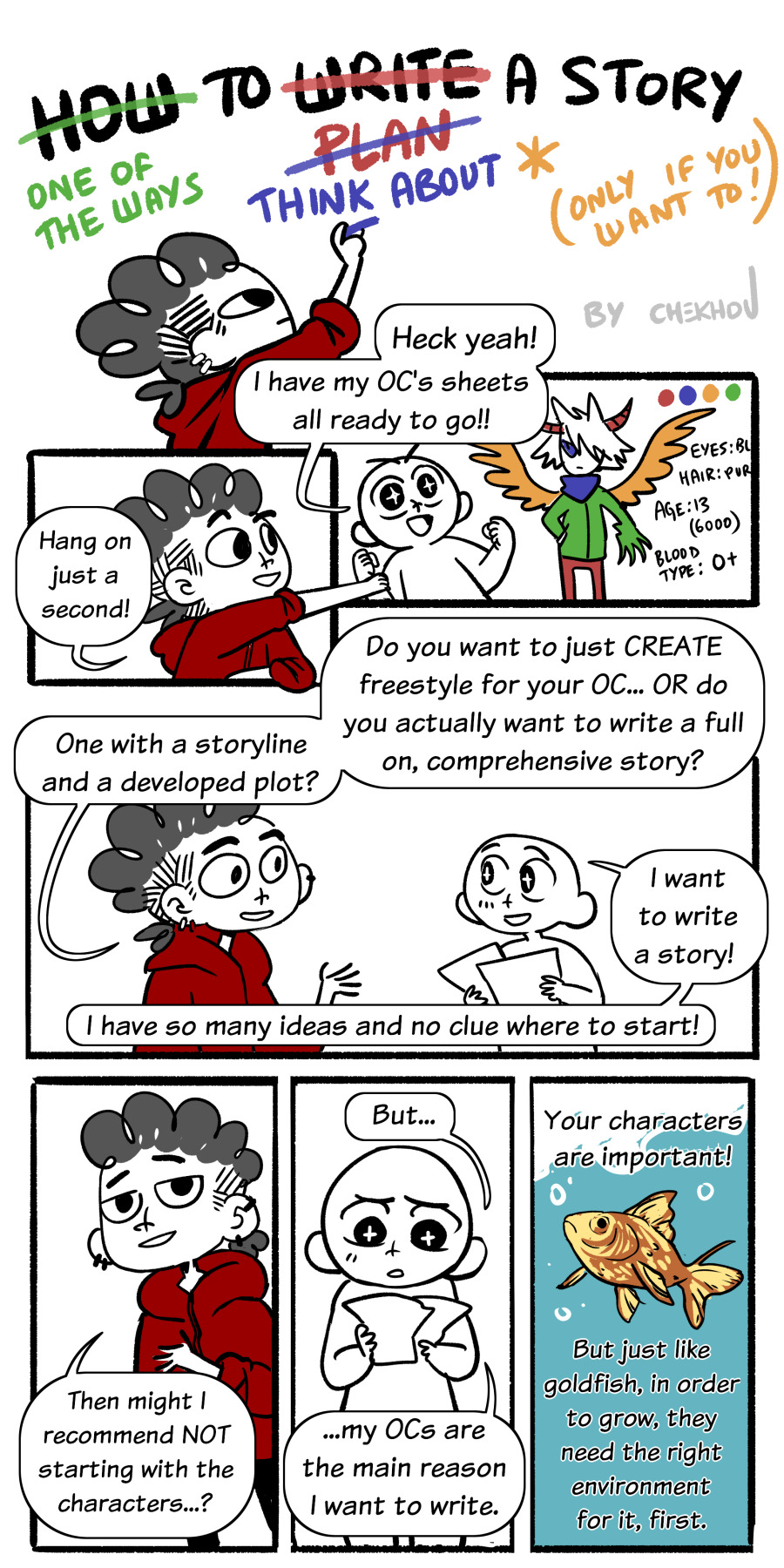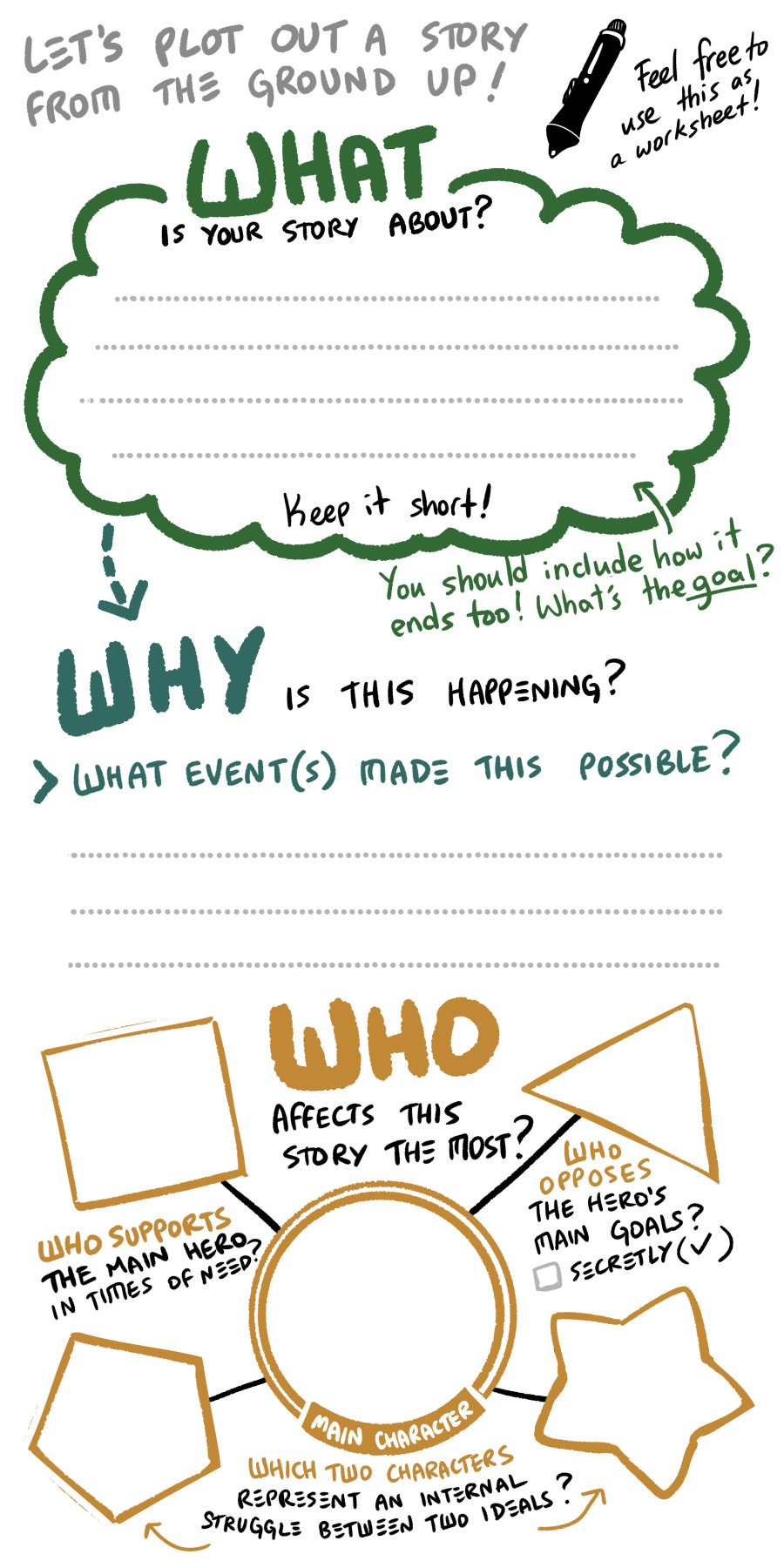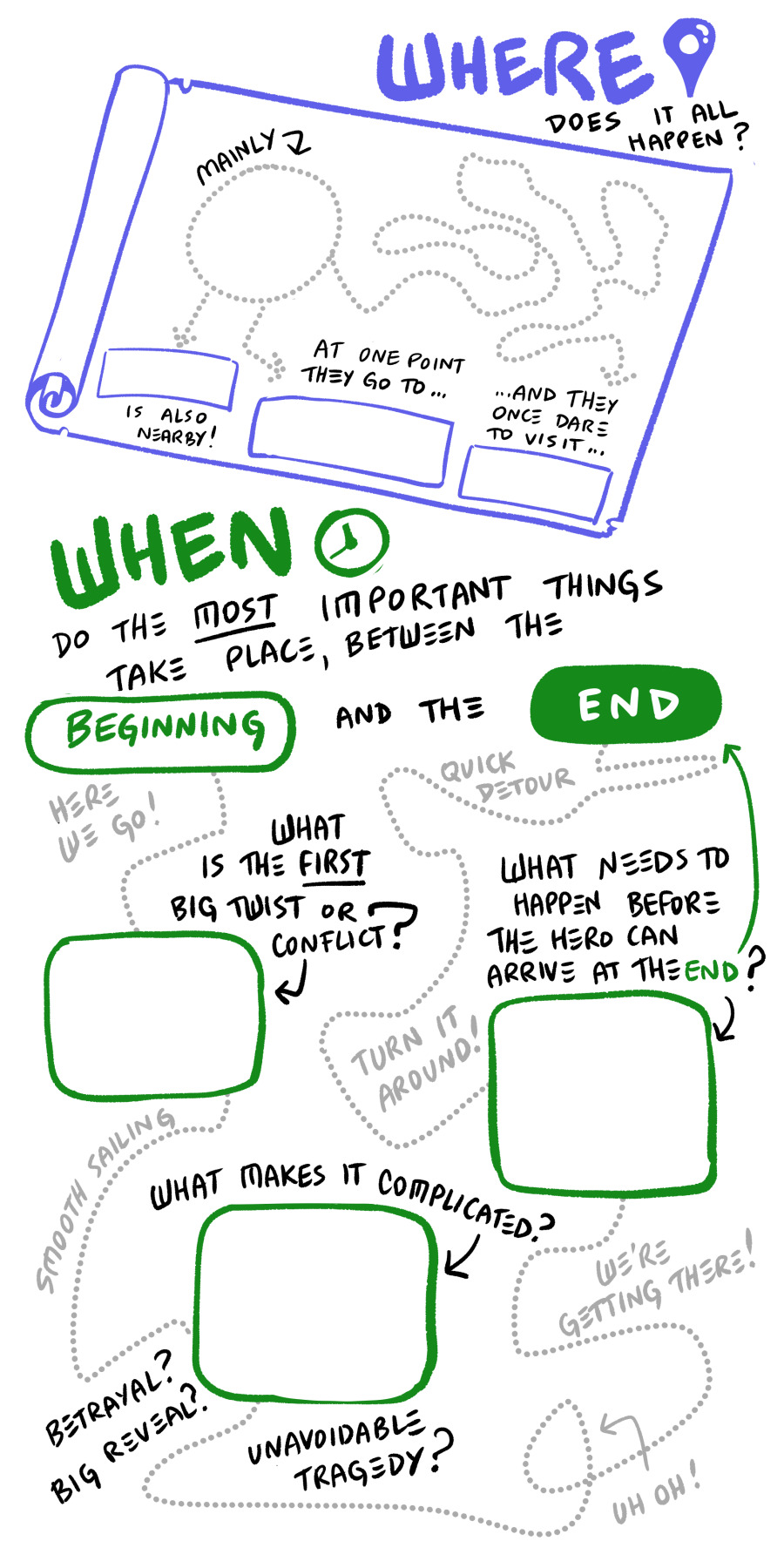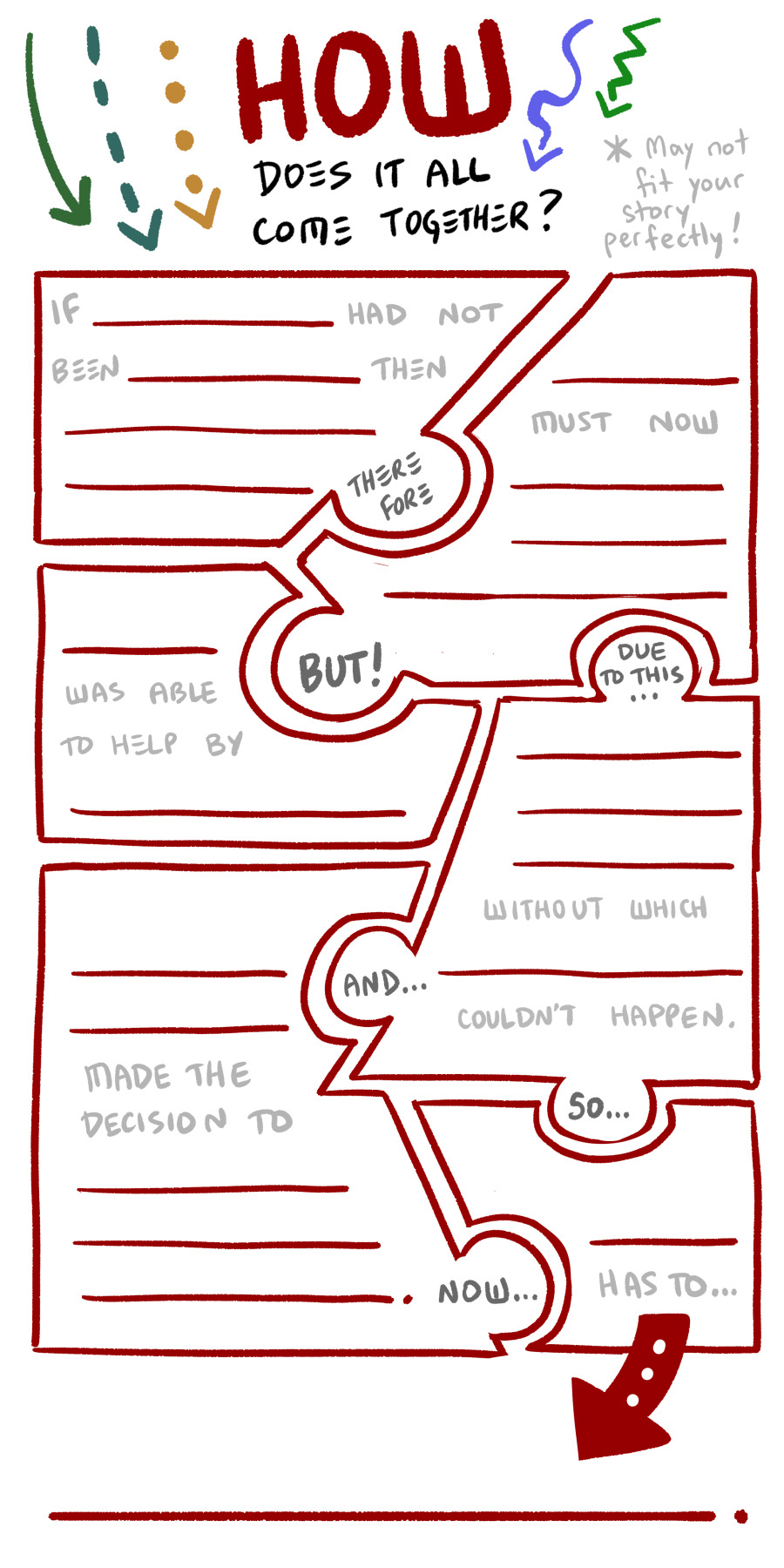Writing side blog! Main is @always-a-fairycat. Check #about for blog info such as triggers.
Last active 60 minutes ago
Don't wanna be here? Send us removal request.
Text
https://archiveofourown.org/works/67080274
Past You, Present Teddy, and Your Period by fairycat on Archive of Our Own (957 words)
Rating: General Audiences
Relationships: Teddy & Reader, arguable Teddy/Reader
Additional Tags: menstruation, fluff, 2nd person POV, no use of Y/N, AFAB reader, gender neutral reader, body dysphoria, gender dysphoria if you squint
Summary: On the first day of your period, all you want is to hear comforting words from your favorite bear.
#date everything#date everything teddy#teddy date everything#date everything!#de teddy#teddy de#teddy x reader#original posts#my content
4 notes
·
View notes
Text
Some of the biggest fantasy worldbuilding fails that I see, in no particular order
Gods without religion. The Gods are real and a known historical fact, but virtually nobody is religious.
Cultural racism/discrimination without structural racism/discrimination. Discrimination that exists only in microagressions or mean comments, without existing in any sort of structural way.
Secret history with no clear reason for it to be secret and no clear method for maintaining that secrecy. Major parts of the world's history are kept entirely secret, even though there's not an obvious reason to do so and even when history has shown this is virtually impossible to enforce (especially in a world with any movement or communication across borders).
Large, homogeneous countries. Even without immigration, virtually no country larger than the Vatican will be fully homogeneous in terms of culture, dialect, beliefs, traditions, etc., much less a large one with limited communication technology as is often seen in fantasy. The Planet of Hats problem.
17K notes
·
View notes
Text
me: i wanna talk about my ocs
someone: ok tell me about your ocs
me, suddenly convinced that every single thing about my ocs is stupid and cringy and probably offensive: i. have them
66K notes
·
View notes
Text
some highlights from my writing seminar with honestly one of my favourite authors of all time who shall remain nameless bc i dont want her to know i was spilling her secrets online
The first trick is to detach yourself from your idea. You don’t have just one novel inside you, and it’s not a big deal if you don’t finish this novel.
She was skeptical of the common advice “just write!!1!��� - she talked about how long ideas for her most popular novels were marinating inside her before she properly wrote them
As a continuation of that, she was a big believer in knowing what you want to write before you write it. Not what you’re going to write, what you want to write.
The first thing she decides about a novel is what the mood is going to be, and this informs every other decision (e.g. the mood for Shiver was bittersweet)
Ideas should be personal, specific, exciting and they should exclude secondary sources. A personal idea isn’t necessarily autobiographical (which should be avoided), but it speaks to your emotional truth.
She said she had been read Ronsey fanfiction and she couldn’t view her car in the same way since.
Story is the thing that seems most important to reader but is most changeable to the author - story is subservient to your mood and your message. Change what you like in the plot as long as your book retains its sense of self.
Story is conflict, exploration and change. A good story has active tension -the characters want something, instead of just wanting something not to happen (e.g. wanting to kill an enemy instead of simply defending a stronghold against an enemy)
A story needs to have a concrete end, something to be done.
Satisfaction is important - deliver what you promise to the reader. The other shoe has to drop. Ronan Lynch doesn’t ever talk about his feelings, so its rewarding when he does.
Earn your emotional moments (she threw shade at Fantastic Beasts lmao)
Forcing a character to be passive is dissatisfying to the reader.
Characters are products of their environments, consistent/predictable, nuanced and specific, moving the plot, and subservient to other story elements.
She always starts with tropes for ensemble casts like sitcoms. Helpful for building good character dynamics.
Write scenes with characters saying explicitly what they’re thinking and then go back and make them talk like real people in the edit.
An action can also prove what they’re thinking, instead of making them say it or another character guess it (e.g. Ronan punching a wall).
Move the reader’s emotional furniture around without them noticing.
All her books follow the three act structure. Established normal -> inciting incident -> character makes an Active Decision -> fun and games -> escalation -> darkest moment -> climax.
Promise what you’re going to do in the first five pages.
Read your book out loud. Record yourself reading it.
If you have writer’s block, it’s because you’ve stopped writing the book you want to write. She likes to delete everything she’s written until she gets back to a point where she knew she was writing what she wanted to write, and then carrying on from there.
24K notes
·
View notes
Text
🌸Describing Scents For Writers 🌸| List of Scents
Describing aromas can add a whole new layer to your storytelling, immersing your readers in the atmosphere of your scenes. Here's a categorized list of different words to help you describe scents in your writing.
🌿 Fresh & Clean Scents
Crisp
Clean
Pure
Refreshing
Invigorating
Bright
Zesty
Airy
Dewy
Herbal
Minty
Oceanic
Morning breeze
Green grass
Rain-kissed
🌼 Floral Scents
Fragrant
Sweet
Floral
Delicate
Perfumed
Lush
Blooming
Petaled
Jasmine
Rose-scented
Lavender
Hibiscus
Gardenia
Lilac
Wildflower
🍏 Fruity Scents
Juicy
Tangy
Sweet
Citrusy
Tropical
Ripe
Pungent
Tart
Berry-like
Melon-scented
Apple-blossom
Peachy
Grape-like
Banana-esque
Citrus burst
🍂 Earthy & Woody Scents
Musky
Earthy
Woody
Grounded
Rich
Smoky
Resinous
Pine-scented
Oak-like
Cedarwood
Amber
Mossy
Soil-rich
Sandalwood
Forest floor
☕ Spicy & Warm Scents
Spiced
Warm
Cozy
Inviting
Cinnamon-like
Clove-scented
Nutmeg
Ginger
Cardamom
Coffee-infused
Chocolatey
Vanilla-sweet
Toasted
Roasted
Hearth-like
🏭 Industrial & Chemical Scents
Metallic
Oily
Chemical
Synthetic
Acrid
Pungent
Foul
Musty
Smoky
Rubber-like
Diesel-scented
Gasoline
Paint-thinner
Industrial
Sharp
🍃 Natural & Herbal Scents
Herbal
Aromatic
Earthy
Leafy
Grass-like
Sage-scented
Basil-like
Thyme-infused
Rosemary
Chamomile
Green tea
Wild mint
Eucalyptus
Cinnamon-bark
Clary sage
🎉 Unique & Uncommon Scents
Antique
Nostalgic
Ethereal
Enigmatic
Exotic
Haunted
Mysterious
Eerie
Poignant
Dreamlike
Surreal
Enveloping
Mesmerizing
Captivating
Transcendent
I hope this list can help you with your writing. 🌷✨
Feel free to share your favorite scent descriptions in the replies below! What scents do you love to incorporate into your stories?
Happy Writing! - Rin T.
13K notes
·
View notes
Text
Filmmaking advice from John Waters
22K notes
·
View notes
Text

It's a double feature this October here at the Prompt Foundry with both Prompts That Go Bump In The Night and OC-tober.
For Prompts That Go Bump In The Night, let's get creepy with it, get in touch with our dark sides, make Edgar Allan Poe proud, and get into the spirit of spooky season!
Feel free to combine different days' prompts with each other, or combine them with other events! Use your OCs, your favorite characters from media, your own experiences, whatever tickles your fancy.
Make this as scary as you want, just remember to tag appropriately!
If you use this list, please tag me here @thepromptfoundry, I’d love to see your writing and art and learn about your characters!
Respond to as many prompts as you want or as interest you, don’t worry about missing or skipping any. Remember, this is supposed to be fun!
If you have any questions or musings, check our FAQ, and if you don't find your answer, shoot me an ask.
Plain text list below the cut:
1 Too many eyes 2 A whisper in the dark 3 Someone who shouldn't be there 4 Vampires 5 Blood 6 An untimely death 7 A shadow in the window 8 The darkness before dawn 9 Nobody's child 10 Open graves 11 Zombies 12 A stolen face 13 Something behind you 14 A lying smile 15 Creaking floorboards 16 Witches 17 The full moon 18 Werewolves 19 Screams on the wind 20 Skeletal remains 21 A black dog 22 Rattling chains 23 Restless spirits 24 The wrong way home 25 Icy breath 26 A forgotten name 27 Words never spoken 28 The other side of the mirror 29 Lights going out 30 An unheeded warning 31 One last chance to escape
450 notes
·
View notes
Text
a list of 100+ buildings to put in your fantasy town
academy
adventurer's guild
alchemist
apiary
apothecary
aquarium
armory
art gallery
bakery
bank
barber
barracks
bathhouse
blacksmith
boathouse
book store
bookbinder
botanical garden
brothel
butcher
carpenter
cartographer
casino
castle
cobbler
coffee shop
council chamber
court house
crypt for the noble family
dentist
distillery
docks
dovecot
dyer
embassy
farmer's market
fighting pit
fishmonger
fortune teller
gallows
gatehouse
general store
graveyard
greenhouses
guard post
guildhall
gymnasium
haberdashery
haunted house
hedge maze
herbalist
hospice
hospital
house for sale
inn
jail
jeweller
kindergarten
leatherworker
library
locksmith
mail courier
manor house
market
mayor's house
monastery
morgue
museum
music shop
observatory
orchard
orphanage
outhouse
paper maker
pawnshop
pet shop
potion shop
potter
printmaker
quest board
residence
restricted zone
sawmill
school
scribe
sewer entrance
sheriff's office
shrine
silversmith
spa
speakeasy
spice merchant
sports stadium
stables
street market
tailor
tannery
tavern
tax collector
tea house
temple
textile shop
theatre
thieves guild
thrift store
tinker's workshop
town crier post
town square
townhall
toy store
trinket shop
warehouse
watchtower
water mill
weaver
well
windmill
wishing well
wizard tower
115K notes
·
View notes
Text
speculative fiction writers i am going to give you a really urgent piece of advice: don't say numbers. don't give your readers any numbers. how heavy is the sword? lots. how old is that city? plenty. how big is the fort? massive. how fast is the spaceship? not very, it's secondhand.
the minute you say a number your readers can check your math and you cannot do math better than your most autistic critic. i guarantee. don't let your readers do any math. when did something happen? awhile ago. how many bullets can that gun fire? trick question, it shoots lasers, and it shoots em HARD.
you are lying to people for fun. if you let them do math at you the lie collapses and it's no fun anymore.
80K notes
·
View notes
Text
One piece of acting advice that has stayed with me for years in regards to both writing and drawing as well is: "Don't use the body to act what the character is saying. Act what the character is THINKING."
Like, as a very, very basic example: a character is apologizing by saying, "I'm sorry." But that line is going to look and sound different depending on what the character is thinking. Crossed arms and a sullen tone can mean that a character is actually thinking, "I don't mean it and also I hate you." A pleading tone and reaching out to take the other character's arm can mean: "Please don't leave me." A tired voice and slumped shoulders within context could mean: "I did what I had to do."
This is one way to begin to do "Show, Don't Tell" in storytelling. It is trusting your audience to see the depth and to catch on to the things you leave unsaid. It's fun to let the audience be observant and clever. It is also reflective of real life, where people are often scared of being vulnerable, or don't necessarily even understand their own emotions, or have difficulty identifying the true feelings of the people around them, and so don't say very much.
There are exceptions to this advice, of course. In writing, rather than in a visual medium, some POV characters are very good at reading emotions from body language and others are not, and their observations in the narration may reflect this skill. Some characters will assume everyone around them is always angry with them or simply not pay attention to other people's moods at all, personalities which can also be subtly communicated to the audience and later used in the story in some interesting way.
Some characters have excellent control over their body language and tone of voice, because they are on-guard, highly trained in some fashion, or a very good liar. They will not easily communicate their true thoughts through their body language or their actions. Their lie can be so good that it can be slipped past the audience as nothing important to the plot until it comes back to bite. Their oddly perfect control over their body in a tense situation can instead maybe be used to indicate to the POV character and/or the audience: "Oh, there's something WRONG with this person."
This advice was originally given to me in the context of illustration and animation, in which it is very common for inexperienced artists to act out the words that the character is saying in mime-like gesture. In media for young children, we might choose to keep things very simple, as toddlers struggle to learn what it looks like and feels like to be angry or happy. But past that? People don't actually behave this way. What we say and what we really mean are not always synchronized.
3K notes
·
View notes
Text
fascinating that when you tell people "you have to learn the rules to break them" when talking about drawing/painting etc everyone nods and agrees but the second you say "you have to read books if you want to write better" there's a horde of contrarians begging to be the wrongest people ever all of a sudden
50K notes
·
View notes
Text




I've had this little idea in my head for a while now, so I decided to sit down and plot it out.
Disclaimer: This isn't meant to be some sort of One-Worksheet-Fits-All situation. This is meant to be a visual representation of some type of story planning you could be doing in order to develop a plot!
Lay down groundwork! (Backstory integral to the beginning of your story.) Build hinges. (Events that hinge on other events and fall down like dominoes) Suspend structures. (Withhold just enough information to make the reader curious, and keep them guessing.)
And hey, is this helps... maybe sit down and write a story! :)
31K notes
·
View notes
Text
Random worldbuilding: A culture where everyone's social status is expressed through how their hair is braided.
Children all have the same kind of a simple, unisex "child's braid" which is meant for their parents to be easy to do - traditionally boys were only taught how to do a "wife's braid" while women braid both their husbands and their children, but a modern man is naturally an attentive father and contributes to both cleaning and feeding, and clothing and braiding his children.
While this kind of knowledge is more accessible in the modern age, the art of braiding is still seen as an intimate family thing, and it's not unusual for a youth to come out to their parents by the way of braids - for example a daughter asking her father to teach her how to do the "wife's braid", or a son asking her mother how to weave the "husband braid" for their future spouse. Or a trans kid asking their parents to give them the other gender's braid when it's time to transition from the child braid into the "unmarried youth" one.
It is nonetheless still somewhat common to see an older gay man with a "wife's braid" or two older women both wearing "husband braids", because that was the only way they were taught to braid a future partner's hair when they were young. They could learn the "appropriate" braid now, but it has become a part of the culture, an old-fashioned gay thing to do. It's pride - if you wear this braid to show that you're an adult with a spouse, why try to hide who braids your hair every morning?
The only braid that one is expected to do on themselves is the widow's braid - the only one that is also unisex, braided in reverse from the simple children's braid. Sometimes, young unmarried adults who have no interest in starting a family switch directly into wearing a widow's braid to signify that they are not looking for a partner and are independent adults on their own.
16K notes
·
View notes
Text
Tips for writing those gala scenes, from someone who goes to them occasionally:
Generally you unbutton and re-button a suit coat when you sit down and stand up.
You’re supposed to hold wine or champagne glasses by the stem to avoid warming up the liquid inside. A character out of their depth might hold the glass around the sides instead.
When rich/important people forget your name and they’re drunk, they usually just tell you that they don’t remember or completely skip over any opportunity to use your name so they don’t look silly.
A good way to indicate you don’t want to shake someone’s hand at an event is to hold a drink in your right hand (and if you’re a woman, a purse in the other so you definitely can’t shift the glass to another hand and then shake)
Americans who still kiss cheeks as a welcome generally don’t press lips to cheeks, it’s more of a touch of cheek to cheek or even a hover (these days, mostly to avoid smudging a woman’s makeup)
The distinctions between dress codes (black tie, cocktail, etc) are very intricate but obvious to those who know how to look. If you wear a short skirt to a black tie event for example, people would clock that instantly even if the dress itself was very formal. Same thing goes for certain articles of men’s clothing.
Open bars / cash bars at events usually carry limited options. They’re meant to serve lots of people very quickly, so nobody is getting a cosmo or a Manhattan etc.
Members of the press generally aren’t allowed to freely circulate at nicer galas/events without a very good reason. When they do, they need to identify themselves before talking with someone.
96K notes
·
View notes
Text
so I’m looking at short story publishers (fantasy)
Tor, cream of the crop. 25 cents a word. Stories can be read for free (YES). Slowish response time at ~3 months. Prefer under 12k, absolute maximum is 17.5k. Don’t bother if it’s not highly professional quality. SFWA qualifying.
Crossed Genres. 6 cents a word. Different theme each month (this month’s is “failure”). Submissions must combine either sci-fi or fantasy with the theme. Response time 1 month. 1k-6k, no exceptions. SFWA qualifying.
Long Hidden, anthology from CG. 6 cents a word. 2k-8k, no exceptions. Must take place before 1935. Protagonist(s) must be under 18 and marginalized in their time and place. Must be sci-fi/fantasy/horror. Deadline 30 April. Response by 1 October.
Queers Destroy Science Fiction. Sci-fi only right now, author must identify as queer (gay, lesbian, bi, ace, pan, trans, genderfluid, etc, just not cishet). 7.5k max. Deadline 15 February. Responses by 1 March. You can submit one flash fiction and one short story at the same time. (My network blocks the Lightspeed site for some reason, so I can’t get all the submission details. >_>) Probably SFWA qualifying?
Women in Practical Armor. 6 cents a word. 2k-5k. Must be about 1) a female warrior who 2) is already empowered and 3) wears sensible armour. Deadline 1 April. Response within three months.
Fiction Vortex. $10 per story, with $20 and $30 for editor’s and readers’ choice stories (hoping to improve). Speculative fiction only. Imaginative but non-florid stories. 7.5k maximum, preference for 5k and under. (I kind of want to support them on general principle.)
Urban Fantasy Magazine. 6 cents a word. 8k max, under 4k preferred. Must be urban fantasy (aka, the modern world, doesn’t need to be a literal city).
Nightmare. 6 cents a word. 1.5-7.5k, preference for under 5k. Horror and dark fantasy. Response time up to two weeks. SFWA and HWA qualifying.
Apex Magazine. 6 cents a word. 7.5k max, no exceptions. Dark sci-fi/fantasy/horror. SFWA qualifying.
Asimov’s Science Fiction. 8-10 cents a word. 20k max, 1k minimum. Sci-fi; borderline fantasy is ok, but not S&S. Prefer character focused. Response time 5 weeks; query at 3 months. SFWA qualifying, ofc.
Buzzy Mag. 10 cents a word. 10k max. Should be acceptable for anyone 15+. Response time 6-8 weeks. SFWA qualifying.
Strange Horizons. 8 cents a word. Speculative fiction. 10k max, prefers under 5k. Response time 40 days. Particularly interested in diverse perspectives, nuanced approahces to political issues, and hypertexts. SFWA qualifying.
Fantasy and Science Fiction. 7-12 cents a word. Speculative fiction, preference for character focus, would like more science-fiction or humour. 25k maximum. Prefers Courier. Response time 15 days.
Scigentasy. 3 cents a word. .5-5k. Science-fiction and fantasy, progressive/feminist emphasis. Fantastic Stories of the Imagination. 15 cents a word. 3k maximum. Any sci-fi/fantasy, they like a literary bent. (psst, steinbecks!) They also like to see both traditional and experimental approaches. Response time two weeks.
Beneath Ceaseless Skies. 6 cents a word. 10k maximum. Fantasy in secondary worlds only (it can be Earth, but drastically different—alternate history or whatever). Character focus, prefer styles that are lush yet clear, limited first or third person narration. Response time usually 2-4 weeks, can be 5-7 weeks. SFWA qualifying.
Clarkesworld. 10 cents a word up to 4000, 7 afterwards. 1-8k, preferred is 4k. Science-fiction and fantasy. Needs to be well-written and convenient to read on-screen. Appreciates rigour. No talking cats. Response time 2 days. SFWA qualifying.
Orson Scott Card’s Intergalactic Medicine Show. 6 cents a word. Any length. Science-fiction and fantasy (along with fantastic horror). Good world-building and characterization. Clear straightforward prose. Response time three months. Yes, OSC is editor-in-chief. SFWA qualifying.
Interzone. Sub-pro rates if anything (but highly respected). 10k max. Short cover letter. Science-fiction and fantasy.
49K notes
·
View notes
Note
I have a question, do you accept requests?
I do not promise to fulfill requests. If that's what you're looking for, then no, I'm sorry. However, if you're willing to throw a request into the ether and hope that I fulfill it some time before whichever one of us dies first, then yes, I accept requests!
0 notes